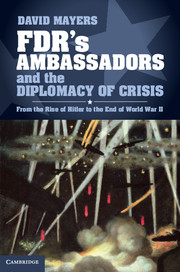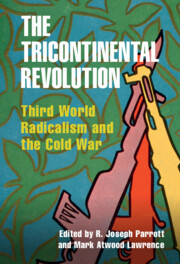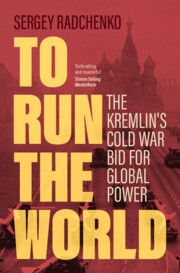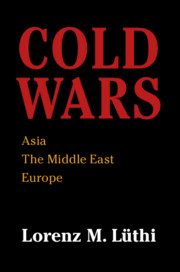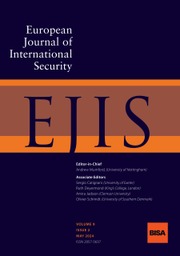The Versailles Treaty and its Legacy
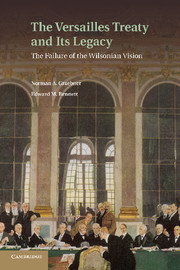
The Versailles Treaty and its Legacy
This study, a realist interpretation of the long diplomatic record that produced the coming of World War II in 1939, is a critique of the Paris Peace Conference and reflects the judgment shared by many who left the Conference in 1919 in disgust amid predictions of future war. The critique is a rejection of the idea of collective security, which Woodrow Wilson and many others believed was a panacea, but which was also condemned as early as 1915. This book delivers a powerful lesson in treaty-making and rejects the supposition that treaties, once made, are unchangeable, whatever their faults.
- Realist interpretation of the long diplomatic record that produced the coming of World War II
- New interpretation of the war of 1939, emphasizing the failure of diplomacy
- Graebner is one of the great historians of the twentieth century
Product details
No date availablePaperback
9781107647480
286 pages
234 × 156 × 16 mm
0.44kg
Often bought together
FDR's Ambassadors and the Diplomacy of Crisis
: Hardback
From the Rise of Hitler to the End of World War II
Often bought together
This title is available for institutional purchase via Cambridge Core
Learn more
Related Journals
International Organization
: Journal
International Organization is a leading peer-reviewed journal that covers the entire field of international affairs. Subject areas include: foreign policies, international relations, international and comparative political economy, security policies, environmental disputes and resolutions, European integration, alliance patterns and war, bargaining and conflict resolution, economic development and adjustment, and international capital movements. The Robert O. Keohane AwardThe Robert O. Keohane award acknowledges Keohane's years of service to IO and support of junior scholars. The 500-dollar award will be presented annually for the best research article in IO written by an untenured scholar.
European Political Science Review
: Journal
The European Political Science Review (EPSR) publishes high quality scholarly research in political science, focusing on the most important debates in the discipline and demonstrating the highest possible standards in conceptualisation, theorisation and methodology. Submissions should emphasise why they are of interest to a broad readership across sub-disciplines and should engage with central theoretical debates in political science.EPSR welcomes empirical papers based on either qualitative or quantitative methodologies. These papers should be placed in the context of larger (theoretical) debates in the discipline. EPSR also welcomes conceptual and theoretical papers as well as contributions from the field of normative political theory.EPSR is not concerned solely with European political issues nor is it conceived as exclusively for European scholars. Submissions dealing with global issues and non-European topics are very much welcome.
Ethics & International Affairs
: Journal
The aim of Ethics & International Affairs, the journal of the Carnegie Council, is to help close the gap between theory and practice (and between theorists and practitioners) by publishing original essays that integrate rigorous thinking about principles of justice and morality into discussions of practical dilemmas related to current policy developments, global institutional arrangements, and the conduct of important international actors. Theoretical discussions that originate in philosophy, religion, or the social sciences should connect with the interests of journalists, activists, policy-makers, and citizens who are primarily concerned with assessing and reforming specific policies, as well as existing rules and institutions such as the United Nations, the World Bank, and the International Monetary Fund; arrangements governing trade, environmental protection, and the use of force; and the International Criminal Court and ad hoc tribunals that address genocide and past societal injustices.
European Journal of International Security
: Journal
NEW IN 2016 - The European Journal of International Security (EJIS) publishes theoretical, methodological and empirical papers at the cutting-edge of security research. Welcoming high quality research from around the world, EJIS covers all areas of international security, including: conflict and peacebuilding; strategy and warfare; environmental and food security; economic and energy security; human and everyday security; technology and security; and security governance. The journal is particularly concerned to make connections and build bridges, both between different disciplinary and theoretical perspectives, but also across regional boundaries.EJIS publishes rigorous, peer-reviewed papers that significantly advance scholarship through original analysis of a salient policy issue, the exploitation of new data, and/or the innovative development and application of theory. In addition to EJIS is also home to occasional high-impact special issues and an annual book review symposium, as well as hosting a regular Junior-Senior dialogue section.The first issue of EJIS was published in February 2016. For all enquiries relating to the journal please contact the Editor, Timothy Edmunds - [email protected]
Related Journals
Also by this Author
Table of Contents
- 1. The international order on trial
- 2. The road to Paris
- 3. Versailles: a study in arrogance
- 4. The retreat to utopia
- 5. Manchuria and the triumph of non-recognition
- 6. The rise of Hitler
- 7. Challenge of the dictators
- 8. The illusive response
- 9. Munich: the continuing escape from reality
- 10. The road to Prague
- 11. The Soviet quest for collective security
- 12. The coming of war.
-
Norman A. Graebner
, University of Richmond, Virginia
Norman A. Graebner was the author, co-author, editor or co-editor of 26 books. He joined the University of Virginia faculty in 1967 as the Edward R. Stettinius Professor of Modern American History and, in 1982, became the Randolph P. Compton Professor. In 1978, he was Harmsworth Professor at Oxford University; he was also one of the founders and early presidents of the Society for Historians of American Foreign Relations (SHAFR). The New York Review of Books identified Graebner, along with Gaddis Smith at Yale, as a national leader in diplomatic history. Graebner served as an officer in the major national historical associations and he received the highest award to a civilian from the US Military Academy for a program he developed and led at West Point. He died in May 2010 at the age of 94.
-
Edward M. Bennett
, Washington State University
Edward M. Bennett is Emeritus Professor of History at Washington State University. The recipient of several outstanding teaching awards, he has written, co-authored, edited or co-edited 10 books dealing with US foreign relations. He is a past member of the executive committee of the Pacific Coast Branch of the American Historical Association. He has been a member of the SHAFR Graebner Prize Committee, as well as its chair. He was also one of 10 American historians selected by the American Historical Association and the American Council of Learned Societies to participate in the colloquia authorized by Presidents Reagan and Gorbachev to assess the Soviet-American relationship in World War II.
Authors
Browse by related subject
- African American history
- African history
- American history 1861-1900
- American history after 1945
- American history: general interest
- Atlantic history
- Australian history
- British history 1066-1450
- British history after 1450
- British history before 1066
- British history: general interest
- Colonial American history
- Cross-discipline history: general interest
- Diplomatic and international history
- Early republic and antebellum history
- East Asian history
- Economic history
- Environmental history
- European history 1000-1450
- European history 450-1000
- European history after 1450
- European history: general interest
- Gender history
- Global history
- Historical theory, historical method and historiography
- History after 1945 (general)
- History of ideas and intellectual history
- History of medicine
- History of native American peoples
- History of science and technology
- History of science: general interest
- Irish history
- Latin American history
- Middle East history
- Military history
- Regional and world history: general interest
- Regional history after 1500
- Regional history before 1500
- Russian and east European history
- Social and population history
- South Asian history
- South-east Asian history
- Twentieth century American history
- Twentieth century British history
- Twentieth century European history
- Twentieth century regional history

